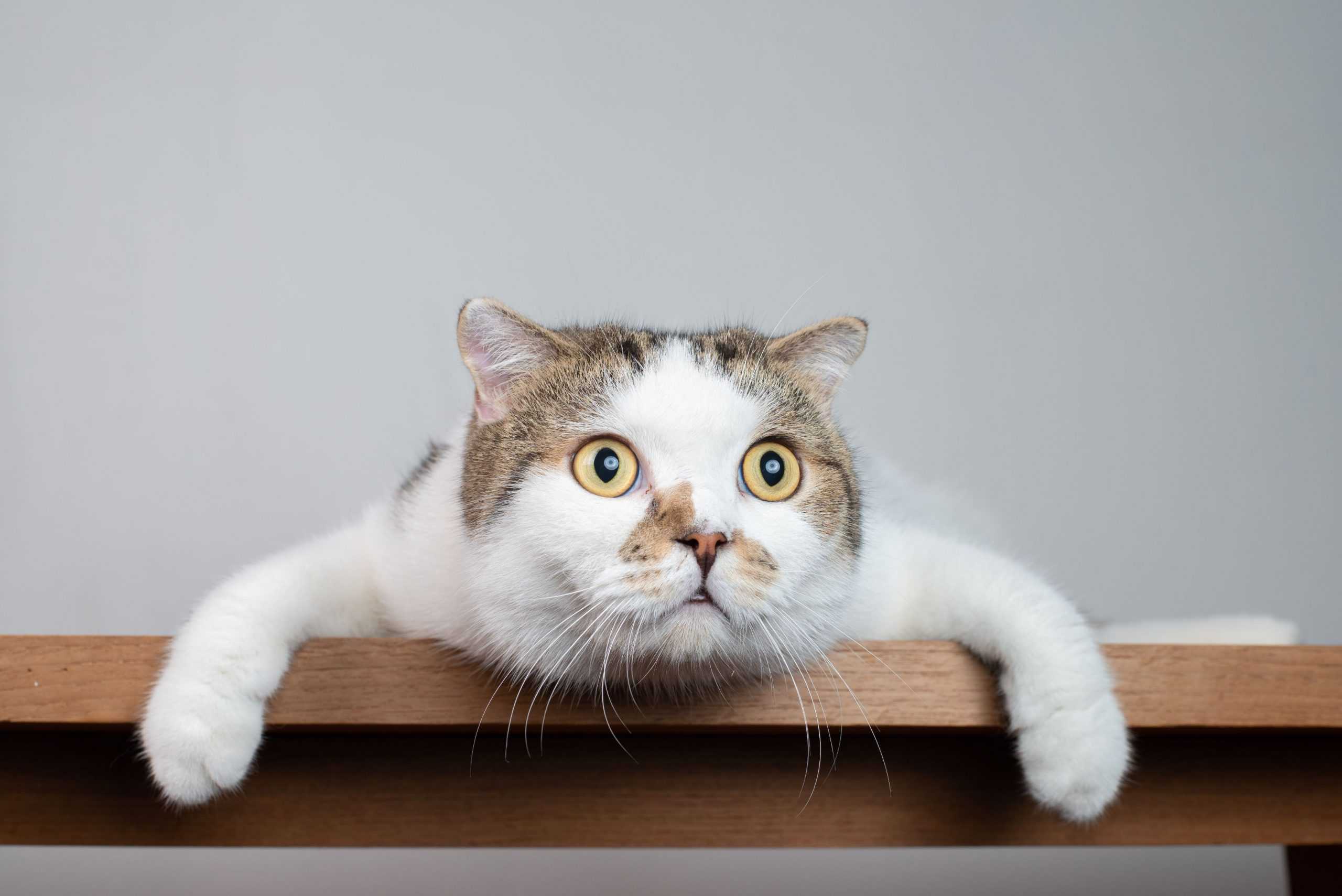Scaredy Cat: Feline Anxiety and Related Issues

We don’t often think of our house cats as tiny, indoor wild cats. The reality is that they are more similar to a panther than they are different, though.
The downside of keeping these pint-sized wild creatures as pets is that we are asking an animal with very deeply ingrained instincts to mesh into our household. This can result in some behavioral issues, including feline anxiety.
Recognizing Feline Anxiety
Out in the wild, cats need to be aware of their surroundings at all times. As both a predator and prey species, everything around them is important. Put these innate instincts into your home, though, and that intensity can get a little overwhelming.
Feline anxiety occurs when a cat becomes stressed by its surroundings, resulting in a fight-or-flight response. This can be related to real dangers (say a strange dog in the home) or things that are more of a perceived threat (maybe that new noisy washing machine).
Common causes of stress in our feline patients include things like construction, changes in routine, new pets or people in the home, or cognitive aging changes.
Different cats may respond to stress in different ways. Signs that your cat may be affected by feline anxiety include:
- Hiding more than normal
- Changes in appetite
- Overgrooming
- Increased aggression
- Vocalization
- Not using the litter box normally
- Pacing
- Digestive problems
- Following you more than normal
Sometimes feline anxiety can even morph into actual medical problems such as feline lower urinary tract disease or a flare up of an upper respiratory infection.
How to Handle Your Scaredy Cat
If you think that your cat is suffering from feline anxiety, there are plenty of things you can do to help your pet.
Once you have identified that your cat is anxious, be sure to:
- Avoid punishing or scolding your cat for anxious behavior—they need to feel safe
- Remove the source of anxiety if possible
- Use synthetic feline pheromones like Feliway to help keep your pet calm
- Create a predictable routine
- Provide environmental enrichment
We also recommend making an appointment with one of our professional veterinarians at Animal Medical Hospital & 24-Hour Urgent Care as soon as possible. Pain and illness are also causes of feline anxiety, and cats are notorious for hiding medical problems until things are pretty advanced.
Our behavior services are also able to help with your cat if there are more complicated things that need to be addressed. Having a scaredy cat is less fun for you as the pet owner, and is definitely no fun for your feline friend. Helping you to address behavior issues like anxiety is an important part of pet wellness care. Call (704) 334-4684 to learn more.
